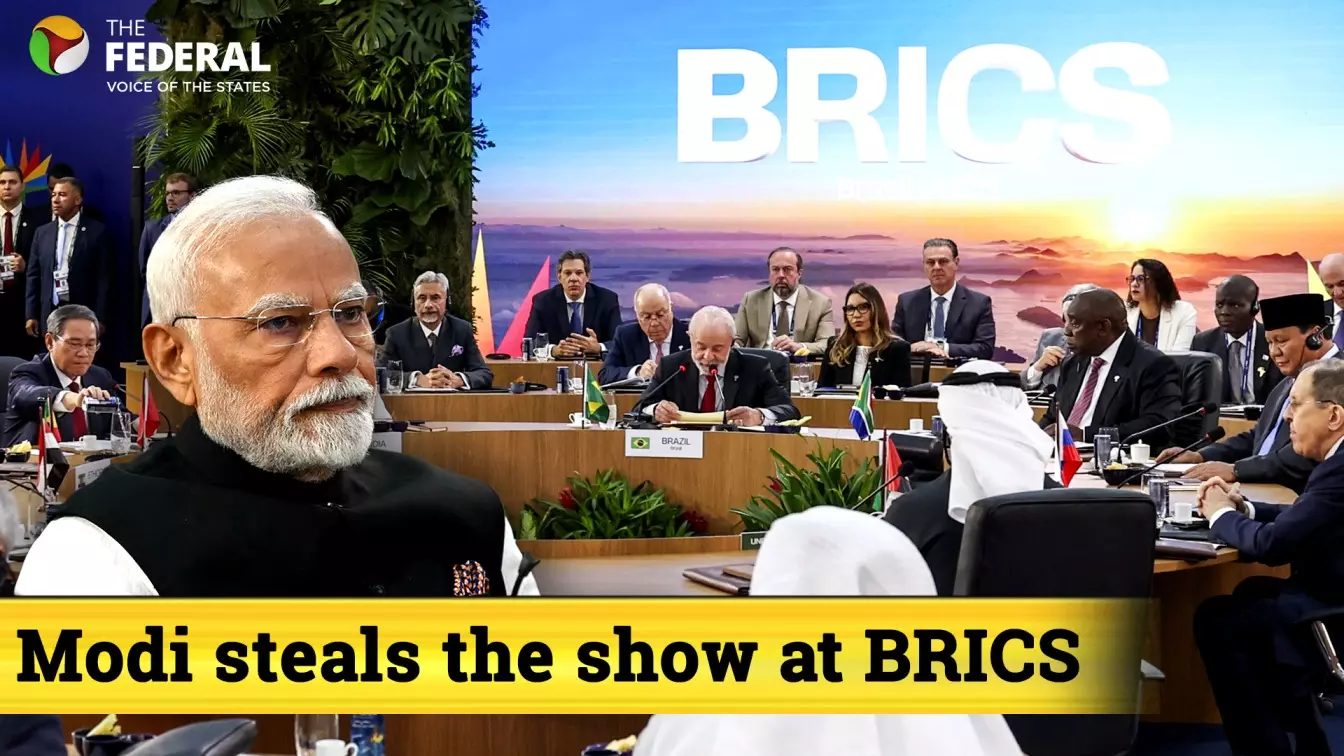
BRICS Summit 2025: Modi leads as Xi, Putin skip event; is this India’s moment?
With China and Russia absent, PM Modi dominates BRICS summit, pushing anti-terror agenda and Global South representation; is this India's geopolitical moment?

With BRICS leaders gathering in Brazil for the group’s latest summit, the absence of the heads of China and Russia has stirred a debate about its strength and future. The Federal's Consulting Editor KS Dakshina Murthy offers insights into BRICS’s relevance, India’s leadership, and the path ahead for the Global South.
How relevant is the BRICS grouping today?
BRICS is still quite relevant, though the extent of its influence is debatable. The grouping is necessary because it amplifies the voice of the Global South and raises issues that might otherwise be sidelined. However, recent global crises—like the Gaza conflict, the Russia-Ukraine war, and Israel’s strike on Iran—have exposed its limitations. BRICS hasn’t played a meaningful role in resolving these. So while the platform has potential, much depends on member countries working to make it more effective.
What is the impact of PM Modi’s anti-terrorism stance at the BRICS Summit? Could it influence nations like China that previously blocked UN sanctions on Pakistan-based terrorists?
When BRICS passes a resolution condemning terrorism, as it did in the wake of the Pahalgam attack, it records the collective position of the grouping. Modi’s focus on counter-terrorism, particularly cross-border terrorism linked to Pakistan, reflects India’s longstanding concerns. While no country overtly supports terrorism, political complexities shape responses. Terrorism remains a layered issue, and though BRICS has condemned it, aligning all members to India’s view is still a work in progress.
Also read: LIVE: ‘BRICS anti-US’, says Trump, warns of 10 pc tariff on nations following its policies
With Xi Jinping and Vladimir Putin absent, did India gain more influence in shaping BRICS’s agenda?
The absence of Xi and Putin was more technical. Putin avoids travel due to war crime charges, while Xi sent a representative. Both China and Russia were represented and engaged—Putin even addressed the summit via video. Their absence didn’t lower their weight within BRICS. India’s role did get attention, but it didn’t dramatically change BRICS’s dynamics.
Modi advocated for Global South representation in global institutions. How will that help BRICS?
More representation gives countries of the Global South a platform to voice concerns on the world stage. BRICS’s expansion brings in fresh voices, but more members don’t automatically make it more effective. There’s a risk of the grouping becoming unwieldy. It’s vital for leaders to maintain a clear vision and strategy to ensure BRICS remains impactful.
Also read: BRICS powerful force for economic cooperation, global good: PM Modi
BRICS is growing. Does that make it more effective?
Expanding BRICS has potential. With Trump’s push for protectionism and threats of extra tariffs on BRICS nations, it’s clear that BRICS is taken seriously—even by critics. A larger BRICS could counterbalance such pressures. But size shouldn’t slow it down. Success will depend on whether leaders can steer BRICS with clarity and purpose amid global challenges.
(The content above has been generated using a fine-tuned AI model. To ensure accuracy, quality, and editorial integrity, we employ a Human-In-The-Loop (HITL) process. While AI assists in creating the initial draft, our experienced editorial team carefully reviews, edits, and refines the content before publication. At The Federal, we combine the efficiency of AI with the expertise of human editors to deliver reliable and insightful journalism.)

